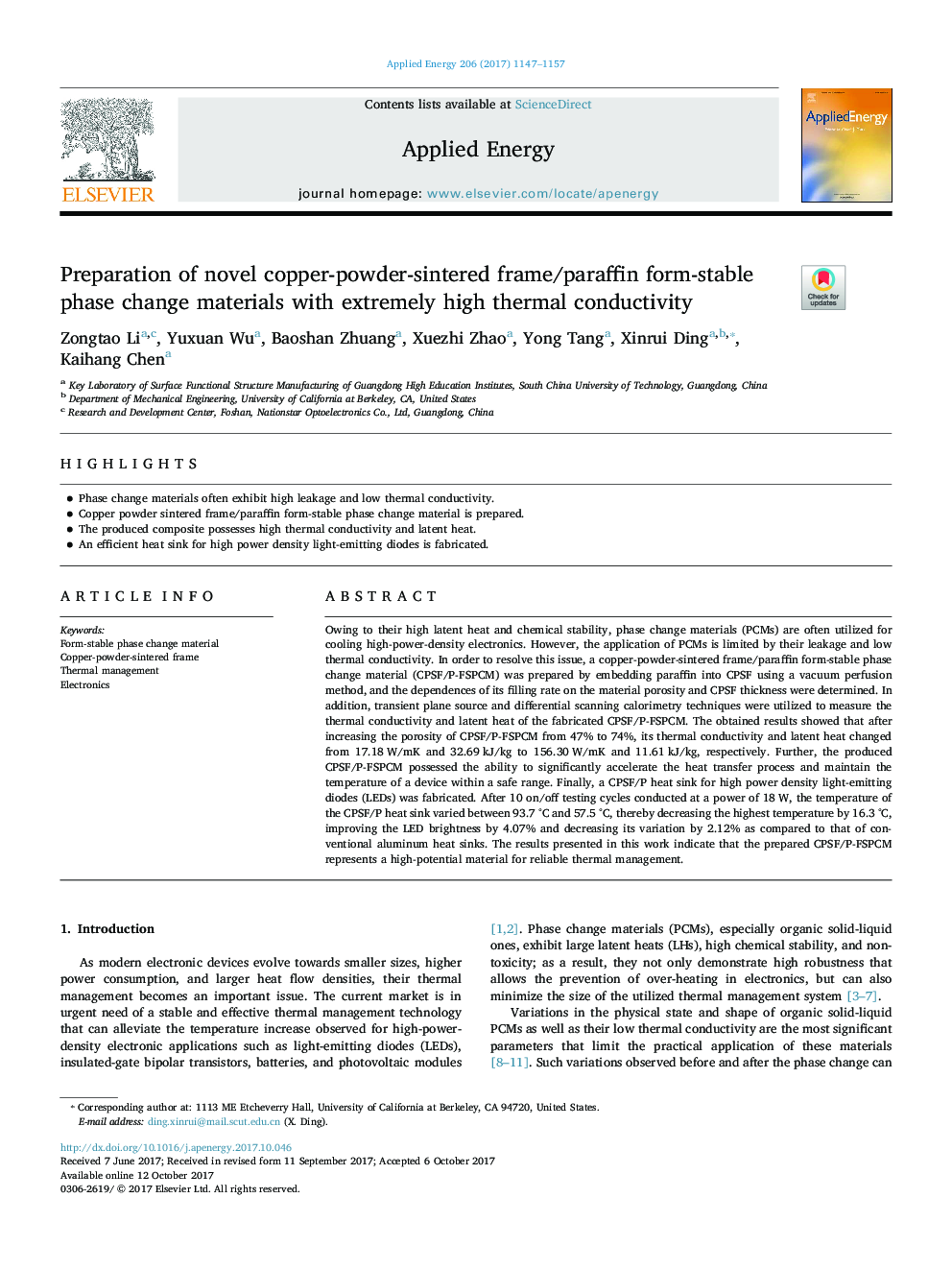| Article ID | Journal | Published Year | Pages | File Type |
|---|---|---|---|---|
| 6681975 | Applied Energy | 2017 | 11 Pages |
Abstract
Owing to their high latent heat and chemical stability, phase change materials (PCMs) are often utilized for cooling high-power-density electronics. However, the application of PCMs is limited by their leakage and low thermal conductivity. In order to resolve this issue, a copper-powder-sintered frame/paraffin form-stable phase change material (CPSF/P-FSPCM) was prepared by embedding paraffin into CPSF using a vacuum perfusion method, and the dependences of its filling rate on the material porosity and CPSF thickness were determined. In addition, transient plane source and differential scanning calorimetry techniques were utilized to measure the thermal conductivity and latent heat of the fabricated CPSF/P-FSPCM. The obtained results showed that after increasing the porosity of CPSF/P-FSPCM from 47% to 74%, its thermal conductivity and latent heat changed from 17.18 W/mK and 32.69 kJ/kg to 156.30 W/mK and 11.61 kJ/kg, respectively. Further, the produced CPSF/P-FSPCM possessed the ability to significantly accelerate the heat transfer process and maintain the temperature of a device within a safe range. Finally, a CPSF/P heat sink for high power density light-emitting diodes (LEDs) was fabricated. After 10 on/off testing cycles conducted at a power of 18 W, the temperature of the CPSF/P heat sink varied between 93.7 °C and 57.5 °C, thereby decreasing the highest temperature by 16.3 °C, improving the LED brightness by 4.07% and decreasing its variation by 2.12% as compared to that of conventional aluminum heat sinks. The results presented in this work indicate that the prepared CPSF/P-FSPCM represents a high-potential material for reliable thermal management.
Related Topics
Physical Sciences and Engineering
Energy
Energy Engineering and Power Technology
Authors
Zongtao Li, Yuxuan Wu, Baoshan Zhuang, Xuezhi Zhao, Yong Tang, Xinrui Ding, Kaihang Chen,
